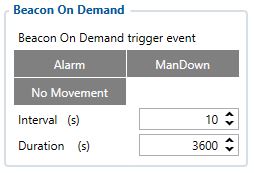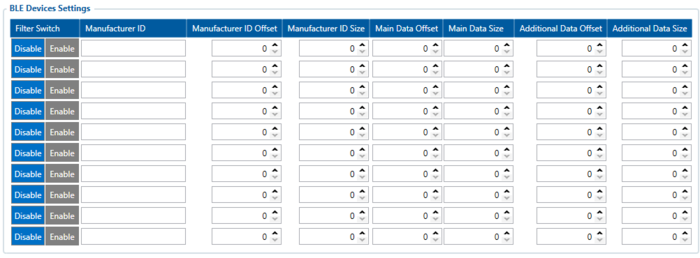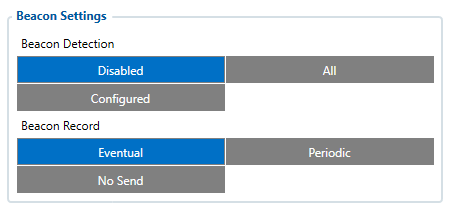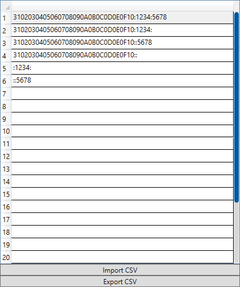TMT250 Beacon List
Beacon Settings
Beacon Detection
Beacon Record
|
Beacon On Demand
Beacon On Demand functionality can be triggered, by a Mandown, No Movement, Alarm event, Button press or SMS/GPRS command, after a trigger, device start scanning for the Beacons and sending found beacon data to the server according to the configured Interval and determined Duration. For beacon detection can be chosen – All or Configured beacons. When this scenario is activated, BLE scan and send time depends on Interval parameter and is repeated before Duration time is expired, additionally feature can be turned off by SMS/GPRS command or if Beacon On Demand OFF button is pressed.

Example of use:
Set Beacon Detection settings All, then choose which event trigger is required or otherwise activate Beacon On Demand button functions in Keyboard section. Next step is to choose Interval, how often records have to be sent and Duration is how long interval will be repeating (ex. interval 30s and duration 300s, which should generate 10 records during this duration period of 300s). Beacon On Demand generates High Priority records, so a device will wake up when beacon on demand functionality is activated.
For commands control, after device receives SMS/GPRS command “beacon_on_demand#” where # is a number 0 or 1.
Possible # values are:
0 – Stops Beacon on Demand functionality.
1 – Starts Beacon on Demand functionality and Starts scanning for determined Duration.
NOTE! At Beacon Settings, parameter (ID 134) Beacon detection, must be chosen in order Beacon On Demand to work.
Beacon List
BLE Devices Settings
BLE Devices Table can be used to read BLE packets coming from any device and deliver filtered data to the server as AVL ID: 585 record.
The device according to the entered Manufacturer ID searches BLE devices that have the same advertised constant data part as entered in the configuration. Usually, Manufacturer ID is found after 5 bytes offset, but this filter allows to set any offset and size up to 8 bytes in size.
The Main Data parameter provides is used to determine and filter out only the desired part of the advertised data that will be sent to the server.
The Additional data parameter works the same as the Main Dara parameter, this way you can extract another data part from the packet.
Each filter/slot is independent. For example, each line in the table can be configured to take different or even the same information from the same beacon and we get separate data listing in the record according to the specific filter/slot number.

List of BLE devices settings:
- Manufacturer ID - Match string in HEX. A constant value on the BLE device advertising frame.
- Manufacturer ID Offset - determines from which byte the match string starts.
- Manufacturer ID Size - determines match string size in bytes.
- Main Data Offset - determines how many bytes offset.
- Main Data Size - determines size in bytes.
- Additional Data Offset - determines how many bytes offset.
- Additional Data Size - determines size in bytes.


